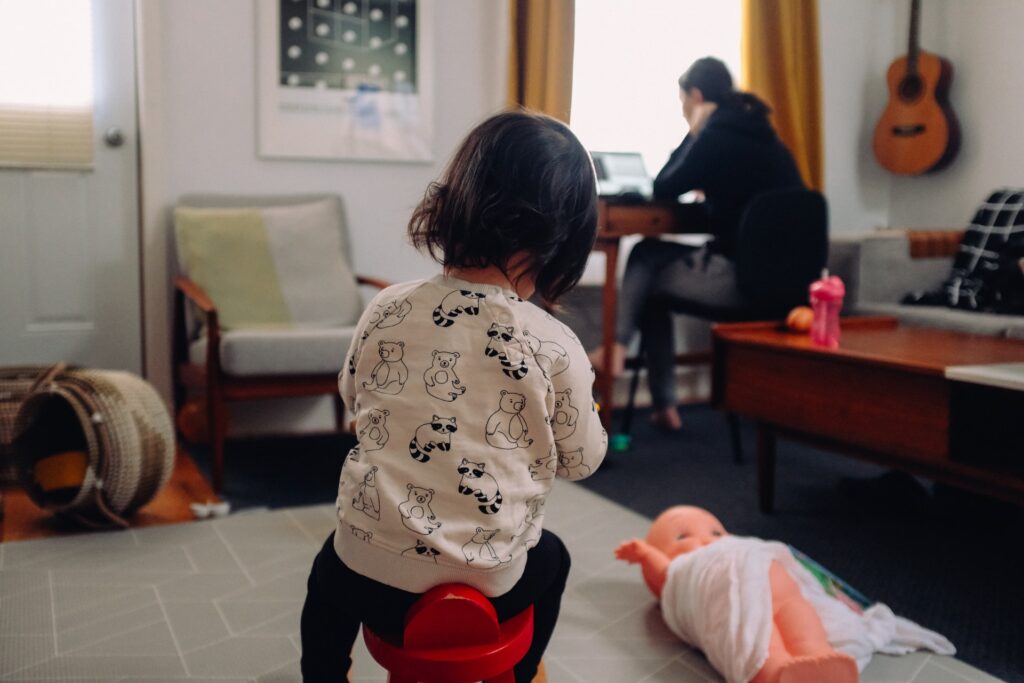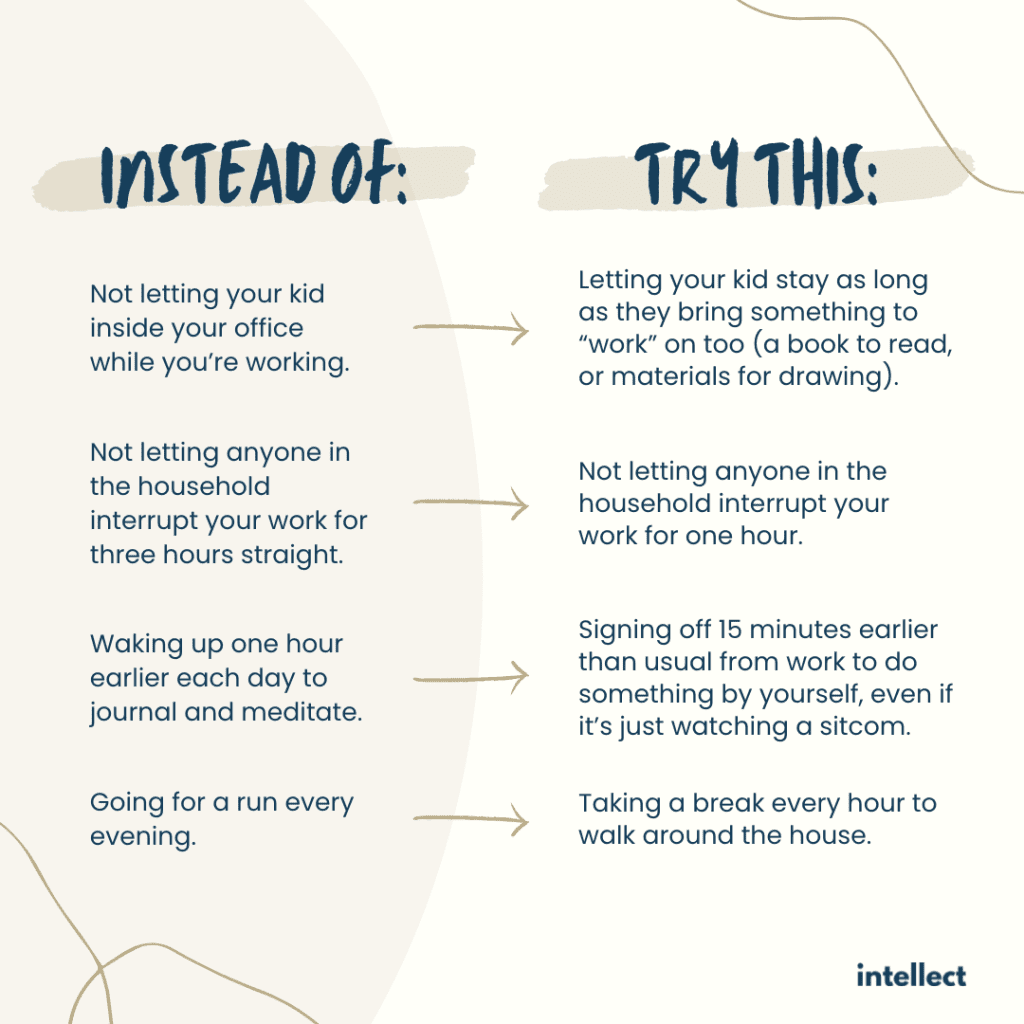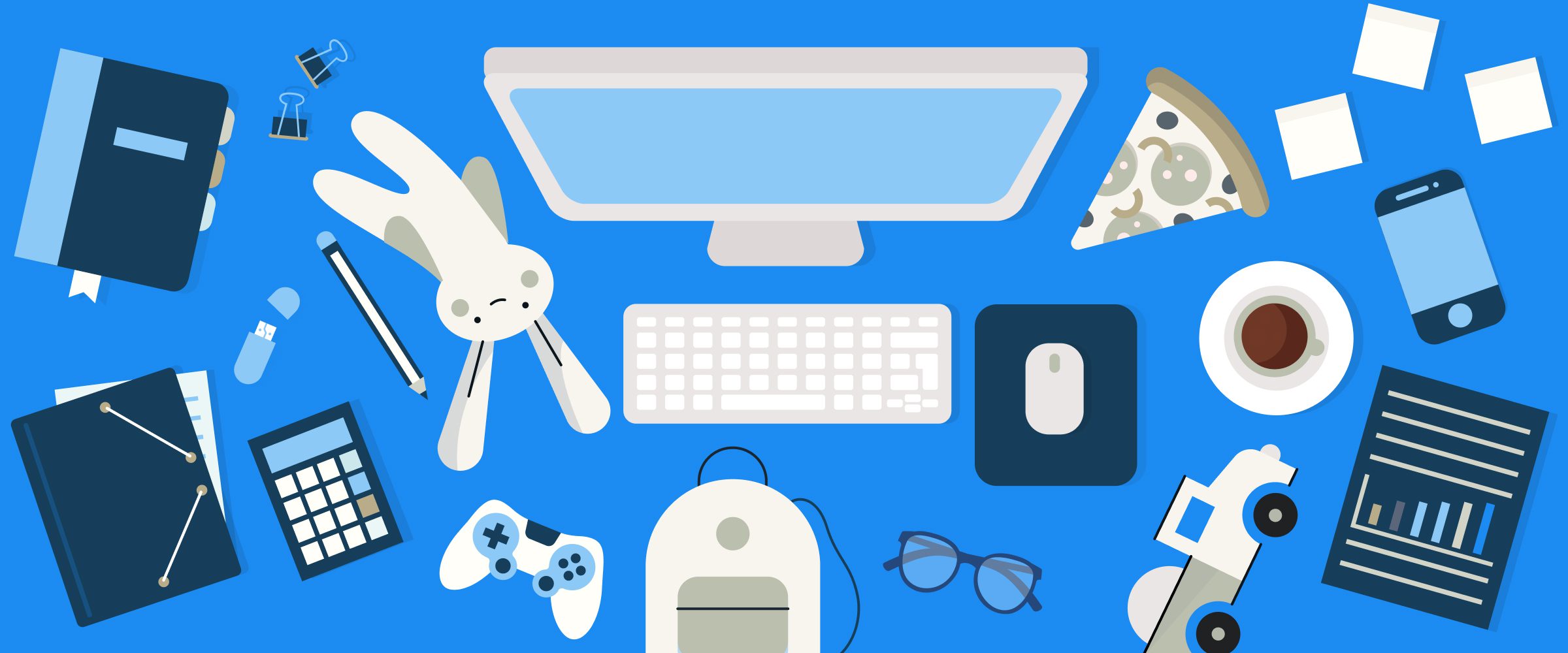The headlines proclaim it: work-from-home (WFH) is here to stay.
Some people love this way of working, others loathe it. For parents, it’s complicated. Very.
“We became much busier as parents during the pandemic. Since the kids are at home, we have [multiple] roles as teachers, parents, and employees,” says Caki Zoehra, creative director of a digital advertising agency and a WFH parent of three in Indonesia.
That’s why it’s crucial for you as a WFH parent to remember to take care of yourself. But you don’t need another list of self-care tips telling you the obvious (and often, slightly out of reach): go for a walk, exercise, set boundaries, meditate, pamper yourself.
You know best what you need, and you’re trying hard to fill your needs and give yourself some TLC while keeping your family healthy and happy.

For many parents, the roadblock to self-care isn’t the lack of ideas on what to do. It’s the mental barriers that prevent you from even allowing yourself to do those things.
Like, you’d love to go to a spa and it’s just an hour. But there’s the commute making it two hours. Besides, there are dishes to wash, meals to cook, toddlers to bathe, kids to tutor… the list never ends.
We talked to WFH parents in Southeast Asia, as well as Intellect’s own behavioural health coach Sandya Padman, to discover their self-care practices. We ended up learning about powerful mindset shifts that WFH parents like yourself can adopt in order to start practising self-care.
📝 We’ve also included a checklist you can use at the end of this article. Click here to download it now!
1. Vulnerability is powerful, and ranting can be productive
Sandya told us about her friend who was a new mom during the pandemic and had reached a breaking point. The friend finally opened up about her struggles, and realised she was not alone.
You remember what it was like as a new parent—the wonder, yes, but also the uncertainty, anxiety, sleepless nights, the desire to give your baby the best care possible, and the pressure from society to love every moment of it. You try to do it on your own and believe others are doing so much better than you.
But when you talk about your struggles, other parents admit they’re going through the same thing.
“The willingness to let others in your life—it’s so easily said, but only if you are willing to let other people in and guide you, can you actually feel the stress relief in you,” says Sandya.
Tiang Lim Foo, co-founder of Forge Ventures and a dad of one, unexpectedly found the same benefit when he started a newsletter, Dads in Tech, during the pandemic. He interviewed fathers in Singapore, Japan, the US, Korea, and other places, and found that they share common hopes and fears.
“You want your kids to be responsible and respectful; you want them to be happy and healthy. It’s a good reminder for me that I don’t have to do this alone. And in turn, I hope to show people that you don’t have to have these conversations with yourself in your own head,” he says.
Hope and commiseration are not the only benefits of a good rant. When you open up, you also pave the path for people to help you.
For example, when you tell your manager at work about the challenges of being a WFH parent, you start a conversation to find a solution.
Your employer might adopt flexible schedules or implement a strict practice of signing off from work by 6pm. Managers and colleagues might decide they can actually email what they need to say instead of getting you to hop on Zoom.
The onus shouldn’t be on you, but the reality is non-parents at work truly don’t know the unique struggles that WFH parents face. Other employers and managers might be WFH parents themselves but might have a stronger support system than you do, which means they might not know the extent of your struggles in juggling working from home and parenting during a pandemic.
2. Self-care and support are important even when things are going just fine
The parents who seek therapy, Sandya says, tend to be the ones who “just can’t take it anymore.”
“The sad part is that people wait until that extent to get help—you know you’re at the very peak, you’re going to burst anytime,” she says.
At that point, people already need intense intervention.
Sandya recommends recognising early signs of burnout. For example, do you find yourself dreading the little things your kids do? If your child’s voice elicits exasperation rather than warmth in you, that’s a sure sign you’re overworked.
And what should you do as a response? You start with small changes.
3. You don’t need to make big changes to your routine to practise self-care
When people think of change, we imagine having to make drastic changes and becoming an entirely new person.
Think of all those New Year’s resolutions you abandoned in February.
A more effective strategy to practise self-care is to focus on the smallest change you can make for yourself in a given moment and within your present environment.
Instead of a big change, try baby steps:

There’s nothing wrong with the resolutions in the left column, to be clear.
But if it takes a major change to practise self-care in your routine to adopt them, chances are your goal is too high and you’re setting yourself up to fail. So start small, then raise your goal gradually.
And ignore that nagging feeling—sometimes exacerbated by aspirational articles and your acquaintances’ social feeds—that a few minutes on your phone doesn’t equate to self-care. That you need to take a holiday or get a new hairstyle or unlock a new achievement to adequately take care of your mental health.
If scrolling through pictures on your phone or watching funny dog videos on YouTube lowers your stress levels enough for you to handle a situation better, then so be it.
That said, if serious exercise is already part of your routine or if you’ve planned and saved for a holiday, they’re excellent self-care practices.
Tiang has been reading since he was young, so it makes sense that books give him a break, a way to enter a different reality or headspace.
He also runs 15 kilometers a week (luckily, Singapore didn’t restrict outdoor exercises like running during the pandemic).
“As I grow older, I feel more urgency to take care of my own body. And there’s a very direct correlation between whether I’m working out and how I feel emotionally and mentally. So I try to run a good distance every week. It’s also a bit of a meditative practice for me, because it’s just me and the road and the pounding of pavement,” he shares.
Meanwhile, his wife does yoga almost every day, along with the “occasional outburst of midnight baking,” he says with a laugh.
So it’s not so much about what you do, but about being realistic in choosing a method to calm yourself.
“Find what de-stresses you,” says Sanghamitra Bhasin, an entrepreneurship development consultant at Wadhwani Foundation and a parent of two in India. For her, it’s music—she takes singing lessons and loves classical Indian music. She also plays online games with her friends and watches “a lot of Netflix.”
Also, try to find “me time” every day, as Caki does. She spends an hour of prayer in the morning when everyone else is asleep, and takes time at night to listen to music, watch a show, or perform a skincare routine.
4. It’s not selfish to fill your cup first
Caki and Tiang point out that when you as a parent are in a bad mood, the rest of the family’s mood tends to follow.
“Paradoxically, if you’re okay, most of the time everyone else around you will be okay. A lot of times as a parent, inevitably you build your life and schedule around your kids. Sometimes you forget that you’re also trying to build a relationship with another human being,” says Tiang.

And that relationship can be negatively affected if you don’t take time to de-stress and recharge. A study of parents in Singapore showed that those who reported feeling the negative impact of COVID-19 also had higher levels of parenting stress. As their stress levels rose, they used more harsh parenting methods and felt less close to their children.
If harsh parenting becomes a regular practice, it can lead to negative behaviour in children, which in turn exacerbates parental stress—a spiral nobody wants to enter.
Filling your cup before filling others’ helps you reduce your stress levels enough to respond with less frustration and strive for more empathy towards your child. But self-care requires self-compassion. And to practice that, you may have to let go of some ideals you previously held.

For example, Caki used to have a rigid schedule for waking and sleeping, meals, and exercise. But two years of pandemic-induced lockdowns have left her feeling down, and she has learned to let go and recognise that it may not be healthy to cling to pre-pandemic ideals.
“Now when I’m depressed, I don’t push myself. Now I listen to what my body needs. If I have to wake up at 7am or sleep at midnight, it’s okay.”
5. Your children are more capable than you know
Sanghamitra observes that her children, now 12 and 18, have matured so much during the pandemic that she no longer feels like she has two kids to watch out for. They have developed a sense of ownership of their home and she no longer has to be the “helicopter parent” she used to be pre-pandemic.
As a result, Sanghamitra found “more mental space”, so much that she felt ready to make a career switch to a more intensive role.
This is partly thanks to the nature of online classes: everything is ruled by your online calendar, so as a parent, she doesn’t have to monitor their schedules too much.
And because kids were attending school from the comfort of their homes, school projects involved helping parents with chores or organising family events, like a stay-at-home picnic.

Sandya, our mental health coach, shares that parents often express surprise at the new behaviours their children have developed during the pandemic. She tells parents that they have encouraged these changes.
For example, when you decide not to pause your work every time your toddler cries for your attention, you might discover that they’ve come to develop skills for independent play. And if your Zoom meeting extends past noon, your teenage kids may end up making lunch for themselves and for you.
Caki agrees, saying: “We won’t discover the best of our kids if we never let them do [things].”
Seeing your children develop new abilities and become less dependent on you can be bittersweet. Say your kid spends more time in daycare or with the nanny in the afternoon so you can focus on work—and they come to enjoy it to the extent that they no longer constantly look for you.
Now you can do deep work for hours or have a video conference without a kid demanding attention in the background. As a WFH parent, that’s a win, though it may also hurt just a little bit.
How Intellect can help
It takes a village to raise a baby. Today, this village includes communities such as workplaces, who can support the wellbeing of new parents with a modern mental healthcare solution like Intellect.
Our platform provides self-guided interventions such as “Managing Baby Blues and Postpartum Depression,” crafted by Cognitive Behavioral therapists to assist new parents in navigating this significant life transition. At Gleneagles Hospital, new mothers have access to Intellect for precisely this purpose. Furthermore, they can connect with a coach, counsellor, or psychotherapist from the comfort of their beds while in recovery.
Learn more about supporting your employees through every stage of their lives here.






